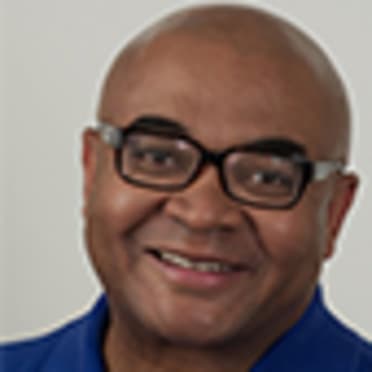How psychology prepped Scott for Rox role
DENVER -- Darryl Scott arrived at Loyola Marymount in the late 1980s with a split-finger pitch from a funky pitching motion and a Major League dream, with a major in business as part of his fallback.
Scott succeeded at Plan A, making the Majors with the Angels for 16 games in 1993 as part of an 11-season pro career. But a change in his Plan B -- after his college coach, the accomplished Dave Snow, introduced him to the late sports psychology pioneer Dr. Ken Ravizza -- led to his ultimate future. Scott, 53, was recently chosen as the Rockies’ new pitching coach, after a long apprenticeship in the organization.
“The first time I met Ken Ravizza, the next day I went and switched my major to psychology,” said Scott, who completed his degree early in his pro career. “From an ability standpoint, I wasn't gifted -- I didn’t have the velocity. I had a split, and that was it. I credit Kenny and Dave Snow and the psychology part of it for me getting through professional baseball and getting to the big leagues.
“Mentally, I had to be better than anybody else. I couldn’t allow stuff to get away from me. I had to stay in control.”
The emphasis on mental toughness has served Scott well in coaching pitchers for the Rockies since 2009 -- including 2017-19 as Minor League pitching coordinator and the last two seasons as Major League bullpen coach. Scott will replace Steve Foster, who will become director of pitching operations to replace the retiring Mark Wiley.
Scott has worked with every pitcher who has come through the Rockies’ system, and even before being added to manager Bud Black’s staff, he was brought in at times to help the Major League pitchers. Also, Scott is a longtime Phoenix resident and has been involved in offseason programs with pitchers -- who as prospects are encouraged to spend offseason time there to work at the team’s complex in Scottsdale, Ariz.
“First and foremost, I see him as a teacher,” Black said. “His relationships with so many of our pitchers based on his 10 years. ‘D-Scott’ is an outstanding relationship-builder. There’s a great level of trust between him and the pitcher.”
In 2018, Scott offered a strong example of why the Rockies value and trust him. For roughly a month, from late May to late June, the Rockies had the highest starter ERA in the Majors. During the slump, Black, Foster and then-bullpen coach Darren Holmes, now with the Orioles, summoned Wiley and Foster to the big club.
Scott had spent more time with the rotation than any of the other coaches. The others had far greater big league coaching experience. Such situations can lead to power struggles. Instead, the group worked seamlessly, and it led to a resurgence.
“I love the fact that D-Scott's been in our Minor League system, has coached many of these guys in the Minor Leagues, has served many people and is getting his chance in the big leagues to now be the one that's accountable and responsible for the scheduling, the preparation and the performance of all these guys,” Foster said.
Those who have known Scott the longest can attest to his qualities.
Snow, who led LMU and Long Beach State to national prominence, coached with Team USA and spent a decade as a Rockies scouting consultant, signed Scott out of Yuba City, Calif., near Sacramento, and used him in every role imaginable. Scott’s attributes beyond his arm impressed Snow.
“He had a slow heartbeat,” Snow said. “He really loved to pitch, had an inner drive and a good, dry sense of humor. He was not real outspoken, but really connected with his teammates. Those intangibles really put him in position to realize his potential, and if you really look at it, he went beyond.”
Longtime Major League scout Rick Ingalls signed Scott for the Angels after he went undrafted in 1990, knowing coaches would not like his motion, but would change their minds once they gave him the chance. It happened at Class A Short Season Boise under knee-shaking circumstance.
“It's the ninth inning, we’re up, 3-2, bases loaded, nobody out and they bring Darryl in,” Ingalls said. “Are you kidding me? If they lose the game, another [criticism] is put on him. Nine pitches later, they win. He strikes out all three. His numbers that year were Nintendo numbers.”
The playing experience with six organizations, including with the Rockies at Triple-A Colorado Springs in 2000, and in Japan, and his psychology background led him to coaching, first with his sons’ travel teams, then with the pros.
The education continues. Because the Rockies for years carried a small research and development staff (which is being expanded), Scott, the pitching coaches and Black have delved into analytics and received certification in the various technologies being used.
It all reverts to meeting a person where he wants to be reached, the way that Snow and Ravizza inspired Scott long ago.
“I can't coach Austin Gomber and Kyle Freeland the same,” said Scott, who during the 2020 pandemic built a portable mound and drove it around the Phoenix area to Rockies pitchers so they could stay sharp. “They like information differently, take in information differently, so you figure out what works for each guy, build trust.
“Then maybe if they see my relationship with, say, Germán Márquez, that gives other guys confidence to say, ‘This guy is all right.’”
